Uncategorized
-
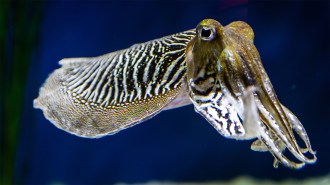 Animals
AnimalsCuttlefish ink may overwhelm sharks’ sense of smell
The main component of common cuttlefish ink — melanin — strongly sticks to shark smell sensors, possibly explaining why the predators avoid ink.
-
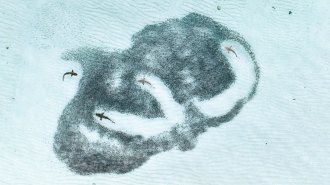 Animals
AnimalsThis bird’s eye view of a shark hunt won a photo contest
A snapshot of blacktip reef sharks hunting hardyhead silverside fish won the 2024 Royal Society Publishing Photography Competition.
-
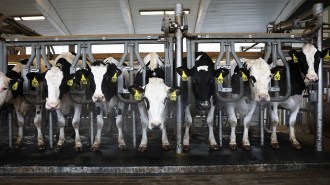 Health & Medicine
Health & MedicineA second version of bird flu is infecting cows. What does that mean?
While the risk to humans of exposure from cows or milk remains low, this new flu spillover from birds into cows raises the need for continued surveillance.
-
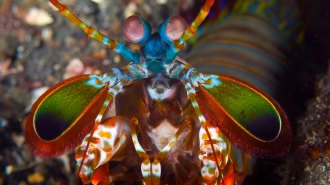 Animals
AnimalsHow mantis shrimp deliver punishing blows without hurting themselves
A mantis shrimp's punch creates high-energy waves. Its exoskeleton is designed to absorb that energy, preventing cracking and tissue damage.
By Jake Buehler -
 Health & Medicine
Health & MedicineSleeping pills may have unexpected effects on the snoozing brain
As scientists unravel how sleep benefits the body, a study in mice is highlighting the potential pitfalls of using Ambien and other sleep aids.
-
 Materials Science
Materials ScienceThe best way to cook an egg — in 32 minutes
It’s hard to cook both the white and the yolk of the egg to the right temperature. Scientists have found a new method, called periodic cooking.
-
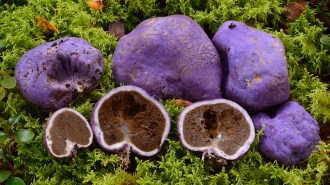 Ecosystems
EcosystemsExtinct moa ate purple trufflelike fungi, fossil bird droppings reveal
DNA analysis reveals the big, flightless moa birds ate — and pooped out — 13 kinds of fungi, including ones crucial for New Zealand’s forest ecosystem.
By Susan Milius -
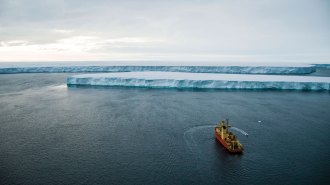 Climate
ClimateCan geoengineering plans save glaciers and slow sea level rise?
As climate change melts West Antarctica’s glaciers, scientists are proposing bold ideas to avoid devastating sea level rise. Will they work?
By Douglas Fox -
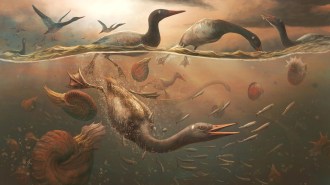 Paleontology
PaleontologyEarth’s first waterfowl may have lived in Antarctica 69 million years ago
A few fossilized body parts hinted at an enigmatic bird's close ties to waterfowl like ducks and geese. A newfound skull may bolster that idea.
-
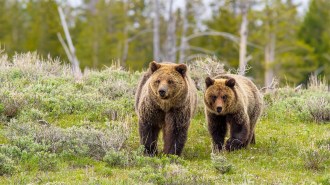 Science & Society
Science & SocietyWill the Endangered Species Act survive Trump?
President Trump has already begun to introduce changes that weaken the Endangered Species Act, a cornerstone of U.S. conservation law.
By Amanda Heidt -
 Artificial Intelligence
Artificial IntelligenceAre AI chatbot ‘personalities’ in the eye of the beholder?
Defining AI chatbot personality could be based on how a bot “feels” about itself or on how a person feels about the bot they’re interacting with.
By Sujata Gupta -
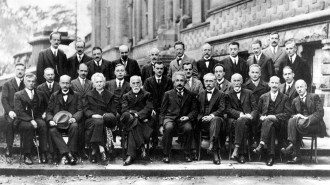 Quantum Physics
Quantum PhysicsQuantum mechanics was born 100 years ago. Physicists are celebrating
Quantum physics underlies technologies from the laser to the smartphone. The International Year of Quantum marks a century of scientific developments.